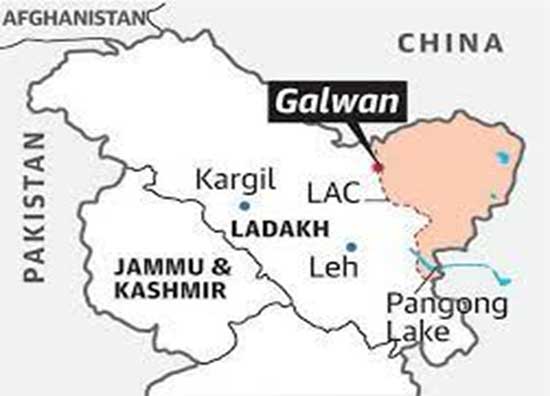Date : 10/06/2023
Relevance – GS Paper 2 : International Relations- Bilateral Relationship
Key Words – BRICS, Indo- China war1962, Multipolar World, RCEP
Context–
- Recently, China’s top diplomat to India, Ma Jia, wrote that China and India can work together toward the recovery and growth of the world economy.
- A discernible pattern emerges when observing summits in which both India and China participate, such as the BRICS meet. During these events, a tendency is observed whereby diplomatic statements expressing goodwill and positive intentions between the two nations are frequently exchanged, often referred to as platitudes.
- The Indian establishment will be least enamored by such statements. India’s foreign minister S Jaishankar has admitted that ties between both nations are not normal on more than one occasion.
India as an Indispensable Power:
- Historical records reveal that since the 1962 Sino-Indian war, some proponents within the Indian establishment have believed that China's aggressive behavior along the frontier is driven by its desire to diminish India's influence in Asia and the developing world.
- However, China's dream of a unipolar Asia is unlikely to materialize. If Japan served as a counterweight in the past, India is poised to become the counterweight of the future. Recent macroeconomic forecasts substantiate India's rising prominence.
- China, having experienced a lack of respect from the West, should understand the importance of treating every nation, especially a rising power like India, with respect.
- Recognizing India as an indispensable Asian and global power should serve as the initial step toward fostering future cooperation.
Good Faith Measures:
- Accompanying the necessary psychological transformation, Beijing must undertake certain goodwill measures.
- It is crucial to restore calm along the borders and refrain from undermining India's relations with its South Asian neighbors. Ensuring peace at the borders is the first step towards fostering cooperation. When soldiers cross borders, trade suffers, and vice versa.
- The responsibility to take concrete steps lies with China, as India and Bhutan remain the only two countries with which China has yet to settle land border disputes.
- Furthermore, there seems to be no strategic rationale for China's efforts to capture uninhabitable high grounds, as doing so hampers a working relationship with a significant Asian power.
- Each move China makes to corner India inadvertently pushes India closer to the Western military alliance, exacerbating China's own security concerns.
Changing Dynamics in Asia:
- India has historically exhibited more caution towards the West than towards China. However, China's belligerent actions are generating new hesitations towards the East.
- When India joined the Regional Comprehensive Economic Partnership (RCEP) negotiations in 2012 and became the second-largest stakeholder in the China-led Asian Infrastructure Investment Bank (AIIB) in 2014, it reflected India's belief in the coexistence of multiple powers in Asia.
- However, India's subsequent refusal to join RCEP signals growing disillusionment with cooperative frameworks built on promises. The clashes in Galwan and Dokalam have forever altered the landscape.
- While this may have been a calculated strategy on China's part, it has pushed the possibility of cooperation to the sidelines within the new equilibrium.
Conclusion:
Although tensions along the border may temporarily impede India's progress, they cannot halt its rise. If Beijing genuinely desires to collaborate for global growth, as suggested by Ma Jia, now is the time for a psychological transformation and a reduction in border tensions. India is rapidly forging closer ties with the West, and the window for cooperation may not remain open indefinitely. By undertaking concrete steps, China can mend ties with India and lay the foundation for a mutually beneficial relationship that contributes to the recovery and growth of the world economy.
Probable Question from this topic–
- Question 1 – Analyze the current state of China-India relations and discuss the steps China can take to foster future cooperation with India. (10 Marks, 150 Words)
- Question 2 – How have the clashes in Galwan and Dokalam affected the cooperation prospects between India and China? Analyze the impact on the regional and global economy. (15 Marks, 250 Words)
Source – Indian express






















